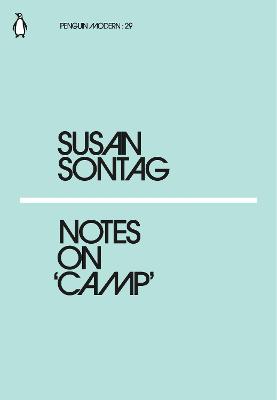Reviewed by clementine on
I was thrilled to find a hard copy of this essay for only £1 today as I've been meaning to read it for my dissertation anyway - can't argue with fate! I always enjoy Sontag's writing - she's so observant and articulate without ever getting bogged down in the jargon that plagues so many of my most-hated academics. I love so much of her take on camp, and she produces some incredible lines, like "The hallmark of Camp is the spirit of extravagance."
But I can't help but be aware that cultural attitudes towards Camp have evolved greatly since this essay was originally conceived and published in the 60s. There's a mainstreaming of certain aspects of Camp sensibility (think Glee), and Sontag's insistence that the best Camp is unintentional doesn't seem to hold weight these days when deliberate Camp arguably outweighs the unintentional. I mean, John Waters films are undeniably deliberately campy, and I just can't agree that they're "less satisfying" as a result of their self-awareness. I also found it odd how the relation between the LGBTQ community and Camp was thrown in only as an afterthought, when that's a relationship that I find vitally important in discussing Camp as a concept and aesthetic practice. You really can't disentangle the two. Finally, I thought it was bizarre that Sontag argued that Camp is "depoliticized - or at least apolitical". Camp's relation to the LGBTQ community makes it inherently political, in my eyes, and anyway I think that any aesthetic mode (or sensibility, as she puts it) that challenges the norms and gives "high culture" the finger is absolutely political. But again, so much about Camp has changed since the essay was written that I can chalk it up to cultural evolution.
Despite these criticisms, this is a beautifully-written essay which I will absolutely be referencing heavily in my dissertation.
Reading updates
- Started reading
- 22 February, 2018: Finished reading
- 22 February, 2018: Reviewed
